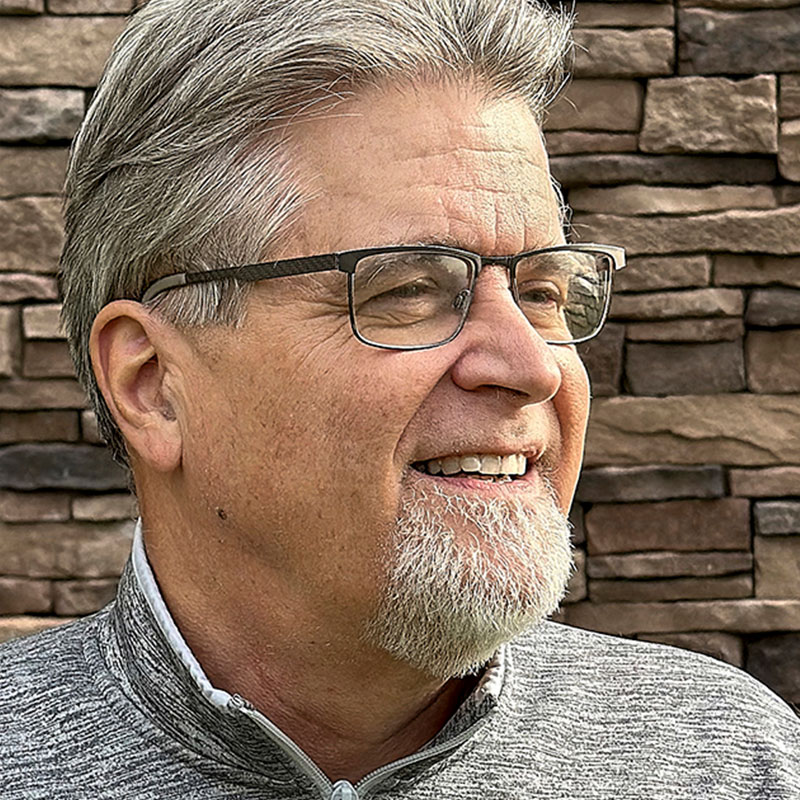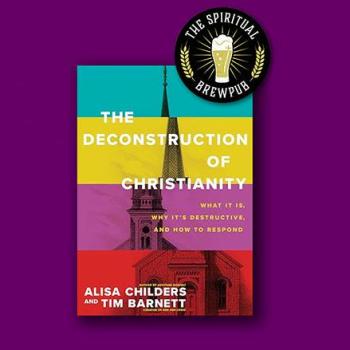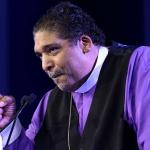
The following about faith deconstruction is an excerpt from Breaking Bad Faith: Exposing Myth and Violence in Popular Theology to Recover the Path of Peace.
Faith Deconstruction: How It Works
******
How does an individual break bad faith associated with violent sacrificial religion and the various frauds and myths in Western Christianity? Once they are open to the possibility that at least some aspects of their faith are bad or unhistorical or misguided, it’s a matter of going on an historical journey. Bad theology is based on a bad study of history. Good theology can only be derived from a sound study of history—one that starts with the foundation, not the observation tower. So, one must rediscover a good study of the original Jesus Movement, learn how it differs from most (not all) versions of modern faith, and how much of later Christian history warped the original “good news of the reign of God” that Jesus taught. It’s important to make the journey one’s own so individuals think for themselves, are open-minded to look under a lot of rocks, and come to their own conclusions. Thinking for oneself is discouraged among evangelicals or fundamentalists but is paramount in any deconstruction and reconstruction process. We will not all land in the exact same place, and that’s fine. The goal is to follow the historical evidence where it leads as we see it but to be open to all ways of looking at things.
This historical journey can be a private research project where one does their own work at uncovering more accurate historical narratives. Or it can be centered on participating in one of the emerging “faith deconstruction workshops” available, such as former Baptist and Vineyard pastor Keith Giles’ “Square One” workshops, which take people back to the beginning to rethink their faith. I also offer a workshop that helps people both deconstruct evangelicalism and reconstruct a more historical faith path or philosophy of life. In my experience, there are six areas that are absolutely key. I cover all of these in my freedom workshops, the first being an on-demand Religious Faith Deconstruction Workshop available on the website, The Spiritual Brewpub:
1. Uncover and Overcome Fear-Based Faith
Most people in evangelicalism/fundamentalism have a fear-based faith. They have a fear of falling away, losing one’s salvation, going to hell, not being “biblical,” not remaining orthodox, being influenced by demons, being gay, losing their Christian friends, becoming a heretic, not having a church covering, losing their Christian job, ruining their religious career, or any manner of other fears. “Perfect love casts out fear” and “Anyone who fears has not been perfected in love,” says the New Testament book of I John. People with a fear-based religion have not experienced true, unconditional love. The love they “know” is conditioned on measuring up to please a transactional and two-faced god who demands something in return and is unprincipled in meting out love and forgiveness. People need to break out of this cycle of fear.
2. Identify One’s Own Cognitive / Emotional Dissonance
People have both cognitive and emotional disconnects that they need to identify and address. In the cognitive area, it could be the intellectual inconsistencies in their faith (e.g., the disconnect between the violent, retributive god found in some parts of the Old Testament and the non-violent, forgiving Father described by Jesus of Nazareth). Or other contradictions they find in the Bible. Or the inconsistencies found in the history of Christianity. On the emotional side, it could be the disconnect between one having a sincere, emotional love for certain individuals who are not considered part of the family of God—the LGBTQ community, ex-evangelicals, atheists, agnostics, people of other religions—and having to reconcile that with the belief that those said individuals will supposedly go to hell if all things remain the same.
3. Learn How the Bible was Compiled and How the First Followers Viewed the Bible
Embarking on an honest study of how the modern Bible was compiled and viewed over the centuries, starting with the Jewish people and later the followers of Jesus, is probably the most important thing one can do to break bad faith (faith deconstruction). For example, believing in the biblical doctrine of inerrancy and practicing a “flat reading” of the Bible can really screw with one’s head. Earlier, we highlighted how the Jewish scriptures were viewed and how they weren’t canonized by Jews—establishing the definitive list of inspired books—until the second century. This was after the Jesus movement had already begun. Likewise, the New Testament wasn’t finalized into a definitive list until the fourth century after hundreds of years of relying on oral tradition, mixed agreements on a variety of writings and what was worthy of scripture, and disputes about certain works, such as the books of Revelation, Hebrews, some of Paul’s epistles, 2 Peter, and Jude. Not to mention the variety of scriptures deemed worthy by many orthodox believers that didn’t make it into the New Testament. The Bible is a product of human decisions made in history. We need to know that history and how the Jews, Jesus, and his earliest followers viewed and used the Bible before we can decide how we should.
4. Learn How the Early “Church” Didn’t Go to Church but Did Build Compassionate Communities
Adding to what we covered in this book, one can learn a lot more about what the earliest Jesus gatherings were like in the first and second century and get an understanding of what the original “ekklesia” was like. This includes its valuation of women as equals, its practices of equitable table fellowship, its outreach to the poor and marginalized. The creeds and fights over “Christology” (precisely how to view Christ’s deity) came much later. Then one can compare that history to the modern church and do a fit-gap analysis on what the differences are, as well as learn where most of our modern church practices came from—many derived from pagan practices that were part of Roman and Greek religious cults and subsequently evolved through the centuries. When this is fully understood, one can clearly see that modern church is optional for a sincere believer and is actually problematic when we are honest about the failures of so many church movements in our time. These failures include the Catholic Church sexual abuse scandal and Protestant churches, denominations, and parachurches financially or spiritually abusing people (or covering up sexual abuse). These include the scandals of Jim and Tammy Baker, Jimmy Swaggert, Bill Gothard’s Institute of Basic Life Principles, Sovereign Grace Ministries (formerly People of Destiny and the denomination I was in for five years), Mars Hill Church (Mark Driscoll), Calvary Chapel, the Southern Baptist denomination, and Hillsong, to name the most famous ones. For every one of these there are myriad more, both large and small churches or ministries that you have never heard of.
5. Learn How the Very First Generation of Followers Viewed Salvation and Rejected All Violence
Another key (for faith deconstruction) is learning the historical facts around what modern Christians believe and call the “penal substitutionary atonement” (PSA)—that on the cross, Jesus was a substitute for all sinners who took the punishment that all humanity deserves (being tortured and murdered by Roman crucifixion) in order to appease God who will then offer forgiveness. The forgiveness only comes IF, and only IF, an individual accepts Jesus as their Lord and Savior (acknowledging PSA). As discussed, history teaches us PSA was foreign to the earliest church and wasn’t even developed until the 13th century and not fully articulated until the 16th century. Another area to be addressed is where the concept of eternal damnation and hell came from and how it was never taught by Jesus or his earliest followers. In fact, Universalism—the belief that all of humanity will ultimately be reconciled to God—was the prevailing view of the Jesus movement for the first 500 years. Moreover, it is learning how the overwhelming majority, if not all, of earliest Jesus followers were pacifists who swore off violence and militarism of any kind. All this opens one’s mind and heart to consider a new paradigm on what salvation really is for humanity.
6. Learn How to Deprogram Oneself from Bad Faith Habits and Overcome the Trauma of Abusive Religion (Faith Deconstruction)
My experience is that secular, cognitive behavioral therapy saved me from clinical depression, which stemmed from abuse inflicted by evangelical churches and leaders (wittingly or unwittingly). Cognitive therapy is just retraining your brain to think differently. In religious deconstruction, it’s about aligning with the ideas of a compassionate and rational God rather than the abusive, manipulative, cultic, fear-based beliefs that conservative Christianity teaches. I recognized cognitive therapy as coming from a God of love who used it to set me free from abusive religion. Another technique I learned was from Dr. David Smith, a philosophy professor at the University of Washington. It’s call “If-Then Logic.” You ask yourself over periods of time questions like “If God is perfectly good, would he or she punish me for sincerely using God-given reason and historical studies to change my mind about certain religious beliefs?” and “If God is truly good, unchanging, and principled, would he or she be two-faced and order genocide of whole peoples in one age of time and offer unconditional forgiveness to humankind in another age?”
My online, on-demand Religious Faith Deconstruction Workshop takes people through these six steps and helps them be set free from the cloud of guilt, fear, and depression that usually accompanies deconstructing evangelical or some other form of conservative Christianity. It also points people toward ways to reconstruct a vital faith on the path of Jesus’ love ethic or a new restorative theory of life based on what one learned in their deconstruction process. Finally, it introduces people to a new community of like-minded folks who have similar experiences with whom they can build relationships, which is also critical to healthy spiritual deconstruction and reconstruction.
******
Michael Camp tends the Spiritual Brewpub, which helps disillusioned or post-evangelicals uncover historical facts and insights that help them deconstruct, rethink, and rebuild a more authentic faith or philosophy of life. He is the author of Breaking Bad Faith: Exposing Myth and Violence in Popular Theology to Recover the Path of Peace. To get specific help deconstructing conservative Christianity and rebuilding healthy faith, see Michael’s Religious Deconstruction Workshop. To hear fascinating interviews with leading voices in the deconstruction community, listen to the Spiritual Brewpub Podcast.


















